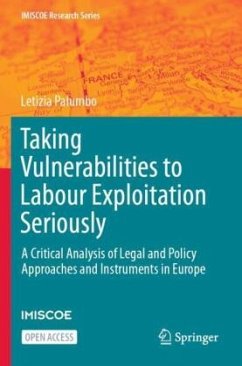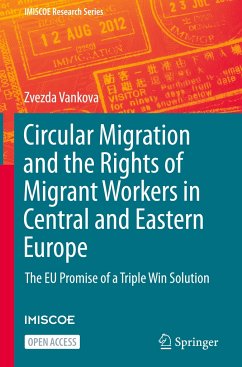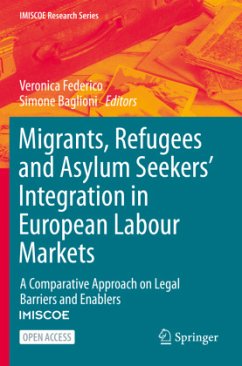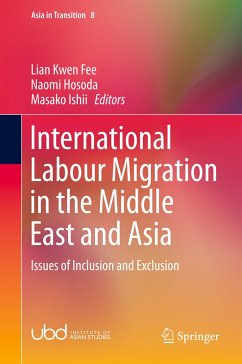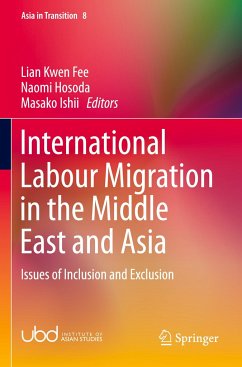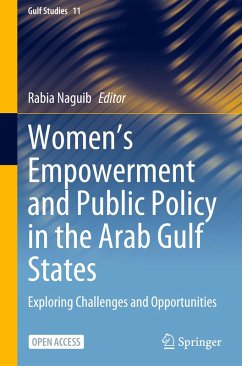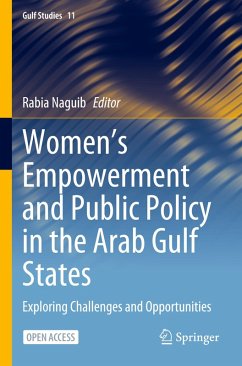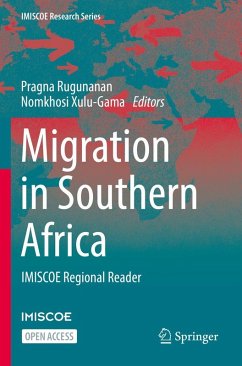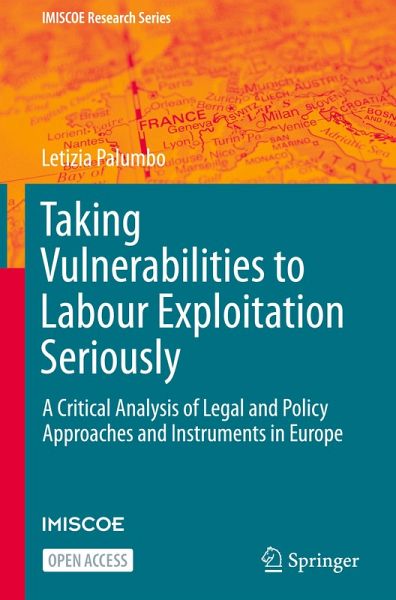
Taking Vulnerabilities to Labour Exploitation Seriously
A Critical Analysis of Legal and Policy Approaches and Instruments in Europe

PAYBACK Punkte
19 °P sammeln!
This open access book intends to contribute to the debate on migrant labour exploitation by exploring the extent to which the EU and the European countries provide a standard for protecting migrant workers. It moves from a socio-legal and theoretical perspective and builds on critical studies on vulnerability, exploitation, trafficking and migrant labour regimes - along with relevant feminist theories, including theories on social reproduction - while also drawing on extensive fieldwork. By mobilising the concept of 'situational vulnerabilities', the book critically investigates the assemblage...
This open access book intends to contribute to the debate on migrant labour exploitation by exploring the extent to which the EU and the European countries provide a standard for protecting migrant workers. It moves from a socio-legal and theoretical perspective and builds on critical studies on vulnerability, exploitation, trafficking and migrant labour regimes - along with relevant feminist theories, including theories on social reproduction - while also drawing on extensive fieldwork. By mobilising the concept of 'situational vulnerabilities', the book critically investigates the assemblage and interaction of factors creating and amplifying migrant workers' vulnerabilities to exploitation in the key sectors of agriculture and domestic work. The aim is to highlight how situations of vulnerability to exploitation are generated and exacerbated by relevant legal and policy frameworks, underlining and questioning the tensions, continuities, and ambiguities between different regimes, such as the regimes regulating labour migration and those intended to combat severe exploitation. While at national level the focus is on relevant Italian legal and policy instruments and approaches, the book also offers a comparative look at those adopted in the UK.
This critical analysis considers labour exploitation both in its systemic dimension and as a continuum. It sheds lights on how forms of exploitation are associated with different 'situational' vulnerabilities produced by the interplay of personal and structural factors in line with a gender and intersectional approach. By engaging an analysis of the ways in which the concepts of exploitation and vulnerability are addressed and formulated in various international, European, and national legal and policy instruments, the study reveals the limitations and ambiguities of applicable legislation and policies. The book is a great resource for students and academics in the field as well as legal practitioners andpolicymakers interested in human rights, migration studies, labour rights, labour exploitation, and gender related issues.
This critical analysis considers labour exploitation both in its systemic dimension and as a continuum. It sheds lights on how forms of exploitation are associated with different 'situational' vulnerabilities produced by the interplay of personal and structural factors in line with a gender and intersectional approach. By engaging an analysis of the ways in which the concepts of exploitation and vulnerability are addressed and formulated in various international, European, and national legal and policy instruments, the study reveals the limitations and ambiguities of applicable legislation and policies. The book is a great resource for students and academics in the field as well as legal practitioners andpolicymakers interested in human rights, migration studies, labour rights, labour exploitation, and gender related issues.





